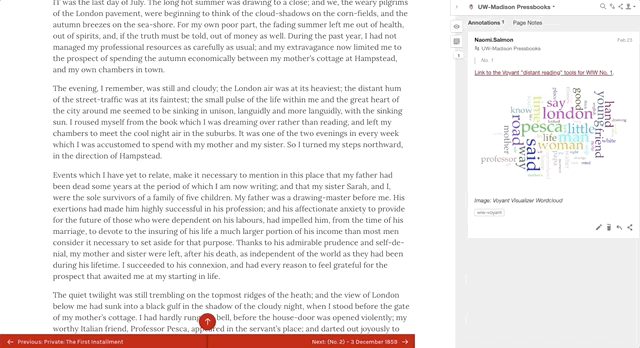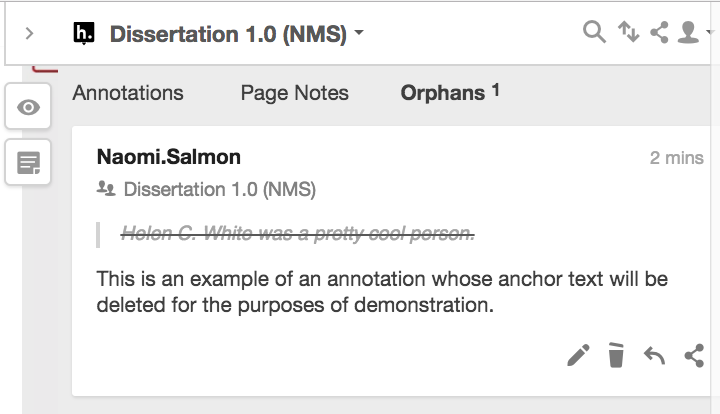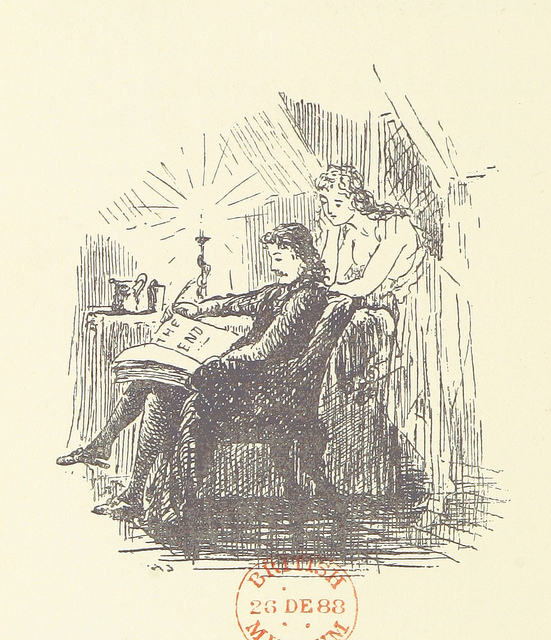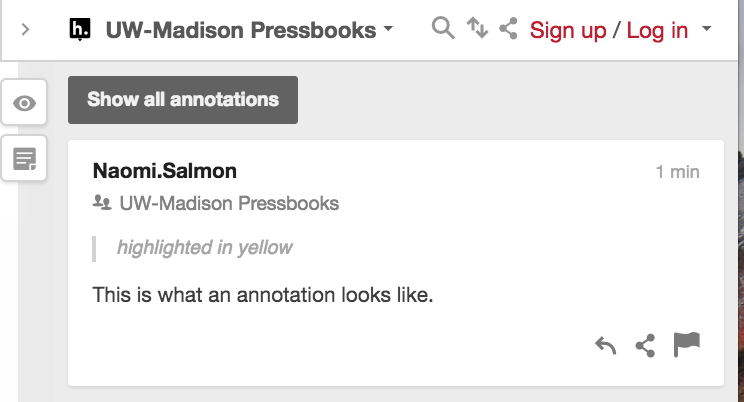Web Section: Engaging With This Project
How to Interact With This Text
Navigating Content
Depending on the size of the screen you’re using, this button will either appear in the middle-right of your page like this:
or at the bottom of your page like this:
Footnotes
Images
Try it here! Click on the image below to see a magnification.
Illustration from The Chronicle of Clemendy (1888). Public domain image shared by the British Museum.
The annotations that accompany this text appear highlighted in yellow.
If you find these highlights distracting, you may click on the eye icon at the top right-hand side of your screen to hide them.
At this stage in my project’s life, this text contains two different annotation layers. The first is the published UW-Madison Pressbooks layer, which is what you should see by default on this and many other pages in this project. I use this layer to post supplemental material that may be of interest, but that may be somewhat tangential to my main point.
When you click on a highlight and the sidebar opens, you’ll see the words “UW-Madison Pressbooks” appear at the top of the pane.
You can display all of the annotations on this layer at once by clicking the carat symbol at the top-right-hand side of the screen: “>”. Clicking on the carat again will hide the annotation pane.
You can change the width of this annotation pane by clicking and dragging the sidebar.
Click here to see an animated example:

Once the annotation toolbar is expanded, clicking outside of the toolbar–for instance, in the space on the left-hand side of your screen–should hide the annotation toolbar once more.
Social Reading Using the Annotation Layer
This dissertation theorizes the social interactions that texts can foster, and marginal annotations play a recurring role in this discussion. (This is especially the case in the sections that explore social annotation in the classroom.)
To access the version of the annotation layer that allows others to comment, sign up for a free Hypothes.is account. Once you’re logged in to the Hypothes.is annotation tool, you’ll be able to access the “Public” annotation group layer by clicking the down-arrow next to the “UW-Madison Pressbooks” Hypothes.is title at the top right-hand side of your screen. Clicking on “Public” will hide the publisher layer and take you to the private group discussion.
If you’d prefer to comment using a private Hypothesis layer that readers other than me cannot see, I’m happy to set one up. However, please feel no pressure to interact with this commenting format if you would prefer not to do so at all. I’m happy to communicate any questions I have about the draft itself in other ways. If, however, you would find it interesting to engage in a conversation in the margins, you are welcome to do so using this tool.
Q/A
Q: What happens to an annotation if its line of text gets removed? Does the annotation disappear forever?
A: Annotations don’t disappear unless the person who posts them deletes them.
However, if, I went into a chapter and removed a paragraph that someone had commented on, the original comment would still exist until the poster deleted the comment. Instead of living on an individual chapter page, however, the post would be archived under a new tab marked “orphans” in the annotation group layer:






